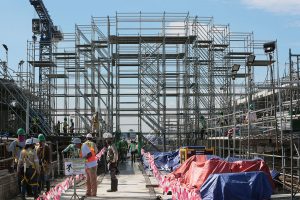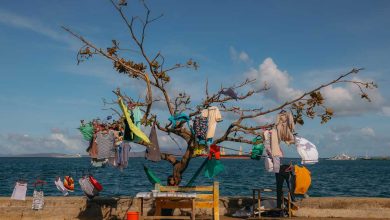Senate, House ratify PPP bicam report after seesaw

The Senate and House of Representatives on Wednesday ratified the Bicameral Conference Committee report that reconciled disagreeing provisions of a bill that seeks to boost private sector participation in state infrastructure projects, after seesawing.
The House first ratified the report after midnight, but withdrew the approval shortly after 5 p.m. after Bukidnon Rep. Laarni Lavin Roque moved for a reconsideration in plenary, without explaining why. It then named several more congressmen as members of the committee.
It ratified the report again late Wednesday night.
Albay Rep. Jose Ma. Clemente S. Salceda, who had pushed for the approval of the measure, did not immediately reply to a Viber message seeking comment.
The Senate in the evening redesignated its representatives to the bicameral committee, only to ratify the report minutes later.
The proposed Public-Private Partnership (PPP) Code seeks to ensure an “open, fair, transparent and competitive selection as the central tenet for securing private investment in PPP projects,” according to a copy of the bicameral report.
The bill seeks to ease bottlenecks and challenges in the PPP process and improve the framework for unsolicited project proposals.
Senators and congressmen who discussed the bill in a conference agreed to “elevate the PPP law into a code so that future amendments will be made to the code instead of in a scattered way,” Mr. Salceda said in a statement earlier in the day.
The proposed code will cover all contracts between a state agency and its private partner to finance, design, construct, operate and maintain infrastructure or development projects and services.
PPP projects may also be financed partly by the government or through official development assistance (ODA) from foreign governments.
ODAs will include blended finance, where the partner government, bilateral or multilateral agency or international or multilateral lending institution can mobilize financing from private or commercial institutions for a loan or grant.
The proposed code will also cover joint ventures, agreements on toll construction, operation and maintenance, and lease agreements.
It will not apply to infrastructure projects under the Government Procurement Reform Act, management and service contracts, divestments or dispositions, corporatization, incorporation of subsidiaries with private sector equity, onerous or gratuitous donations, and joint venture agreements that are purely commercial in nature.
In developing a PPP project, an agency must consider the legal, technical, financial and commercial feasibility of the project; the value for money of the project; optimal risk allocation; affordability of fees and tariffs; climate resilience and sustainability; and social and environmental safeguards.
Under the bill, national PPP projects that cost P15 billion must be approved by the Investment Coordination Committee of the National Economic and Development Authority (NEDA), while those costing below P15 billion must be approved by the agency head.
Local PPP projects must be approved by local councils.
The head of an agency undertaking PPP projects will create a PPP pre-qualification, bids and awards committee in charge of all pre-bidding and bidding processes in solicited proposals or the comparative bidding process in unsolicited proposals. The final contract will be reviewed by the head of the agency.
The bill also seeks to create a PPP governing board that will oversee policies related to public-private partnerships.
The board will be headed by the NEDA secretary, with the Finance secretary as vice chairman.
The Commission on Audit will issue guidelines on auditing PPP projects.
The Senate approved the PPP bill on Sept. 25, while the House passed its counterpart measure in Dec. 2022.
As of Sept. 1, there were 104 PPP projects in the pipeline worth about P2.521 trillion ($44.3 billion). About 180 projects worth P2.639 trillion are being implemented, according to the Department of Finance. — Beatriz Marie D. Cruz and John Victor D. Ordoñez




